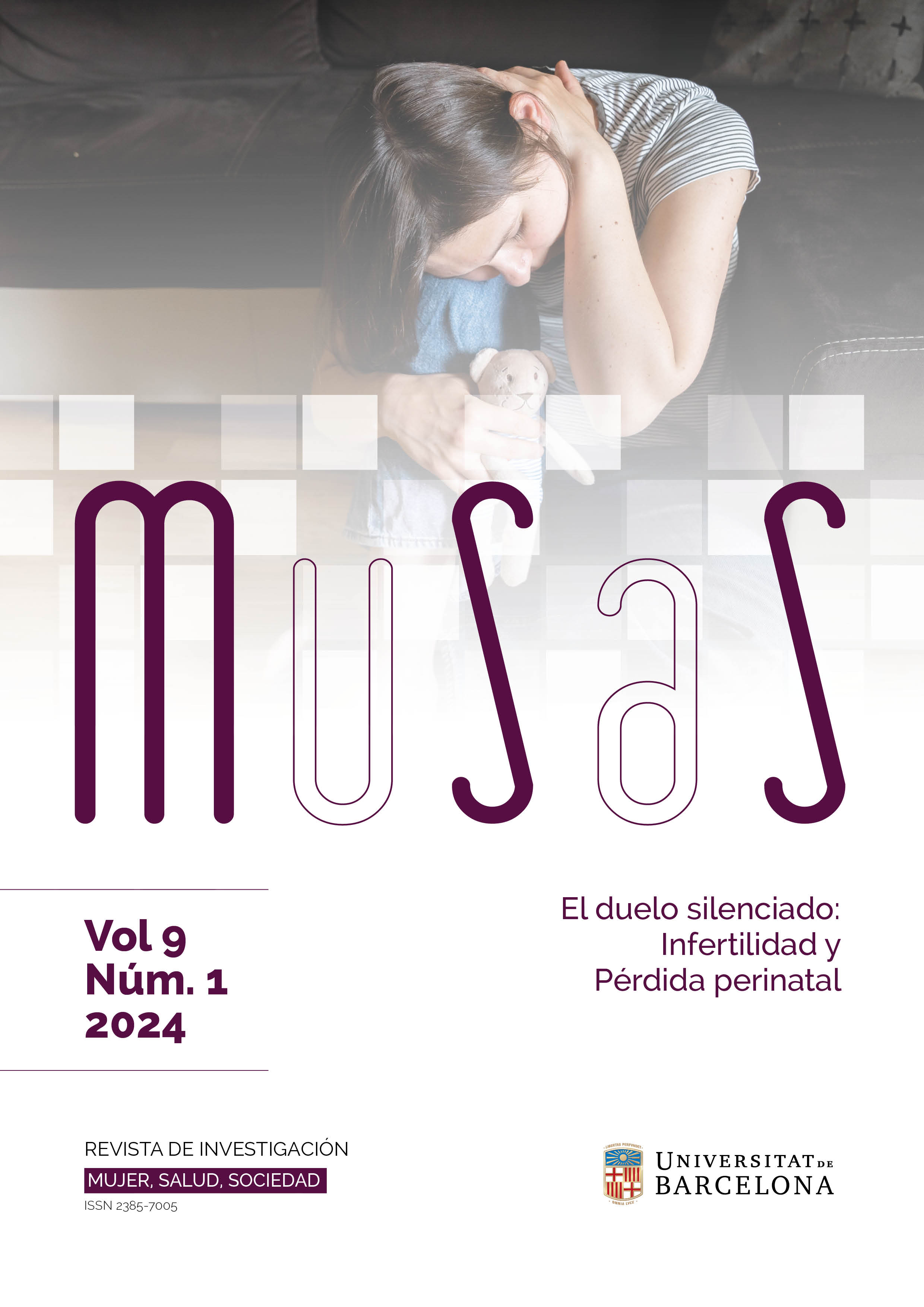First Trimester Miscarriage. Invisible Mourning
DOI:
https://doi.org/10.1344/musas2024.vol9.num.1.2Keywords:
Grief, Abortion, Perinatal griefAbstract
Aim. The objective of the study was to describe the experience during hospital care of first trimester pregnant women admitted for spontaneous abortion and their experiences after post-abortion discharge. Method. Qualitative study with non-probabilistic sampling. The database of a high-complexity hospital in Santiago de Chile was used, with the sample size being 9 participants defined by the saturation criterion. Data were collected with a semi-structured interview and processed by performing narrative analysis. Results. Categories were identified: Emotions and feelings of mothers related to abortion, which includes rejection of pregnancy, fear of another pregnancy and the emotional experience of couples. Another category was the Interpersonal relationship between providers, couples and family, which highlights the treatment of the user, prejudice about the cause of abortion, the quantity and quality of information provided about the diagnosis and procedures. The rituals in the first days after abortion and the psychological state of the woman after the abortion were also recognized. The social vision of voluntary abortion was an emerging category. Conclusion. The communication skills of the professional and the ability to accompany the emotional experience of reproductive loss influence mental health, the grieving process and the mother's assessment of the quality of care. Monitoring of the user’s psychological condition is insufficient.
Downloads
Published
Issue
Section
License
Authors publishing in this journal agree with the following terms:
- Authors hold the copyright, but MUSAS holds the right of first publication.
- Manuscripts will be disseminated with the Creative Commons CC BY-NC license, which allows sharing it with third parties as long as they recognize the authorship, the first publication right held by MUSAS and the license’s conditions






